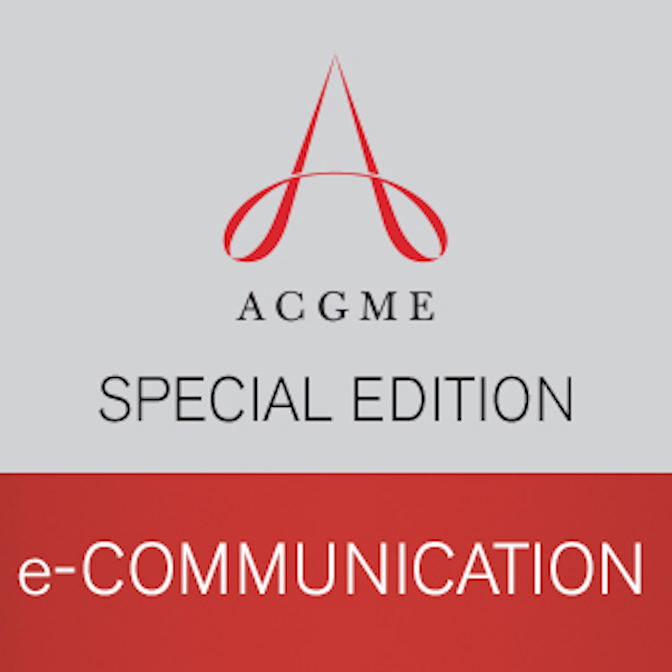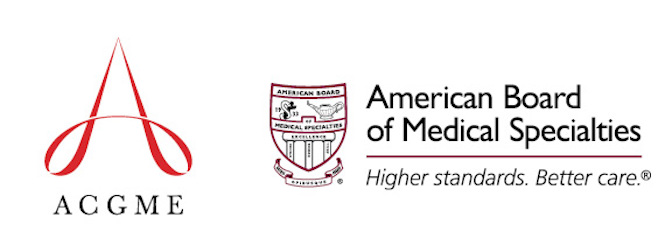Programs
ACGME Announces Policy to Enforce Compliance with COVID-19 Prevailing Requirements
The ACGME has updated its Procedures for Alleged Egregious Events to address how it will rapidly respond to alleged non-compliance with the four prevailing COVID-19 priority requirements, including the addition of a public sanction.
May 4, 2020
This special edition of the ACGME's weekly e-Communication includes information on a well-being webinar May 7, and Frequently Asked Questions.
April 27, 2020
This special edition of the ACGME's weekly e-Communication includes Specialty Letters to the Community, a link to Frequently Asked Questions, and news from Milestones and the Journal of Graduate Medical Education.
New Journal of Graduate Medical Education (JGME) Article Explores the ACGME's Early Lessons Learned in the COVID-19 Pandemic
JGME has published an open access version of Dr. Thomas J. Nasca's News and Views article for June 2020 discussing the ACGME's response to the COVID-19 pandemic.
ACGME Shares American Osteopathic Association (AOA) Statement regarding COVID-19
As a resource to the graduate medical education community, the ACGME is sharing the following statement from the AOA regarding COVID-19.
April 20, 2020
This special edition of the ACGME's weekly e-Communication includes a statement honoring the sacrifices of frontline caregivers, new Frequently Asked Questions, and news from Milestones and the Journal of Graduate Medical Education.

April 13, 2020
The American Board of Medical Specialties and Accreditation Council for Graduate Medical Education Joint Principles: Physician Training During the Coronavirus Disease 2019 Pandemic
To provide clarity for trainees and programs during this extraordinary time, the ABMS and ACGME offer the following statement of joint principles and will continue to address ongoing developments.

ACGME Statement on Furloughs Resulting from the COVID-19 Pandemic Emergency
Furloughs of residents/fellows are unacceptable to the ACGME. In extraordinary circumstances Sponsoring Institutions and programs must adhere to ACGME policies, procedures, and requirements concerning withdrawal of accreditation, disasters, and institutional/program closures, as applicable.
April 6, 2020
This special edition of the ACGME's weekly e-Communication includes a statement on personal protective equipment and new Frequently Asked Questions the ACGME is receiving regarding accreditation and recognition activities during the pandemic crisis.

